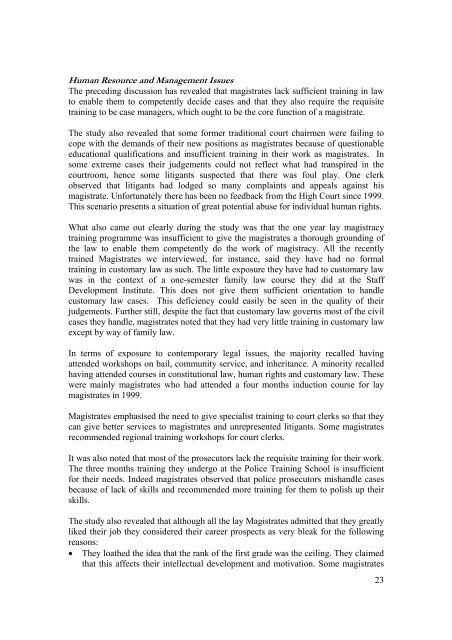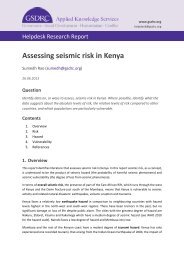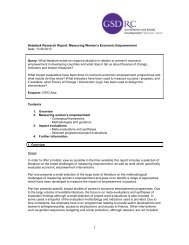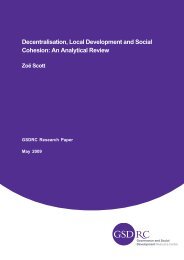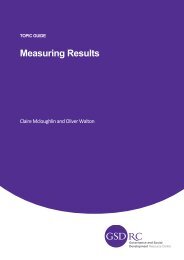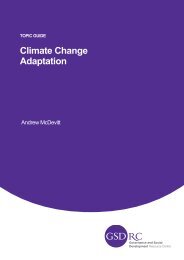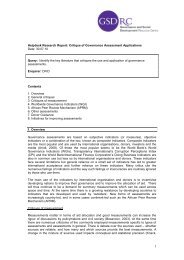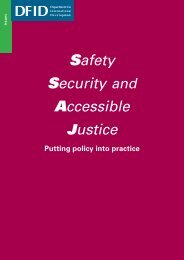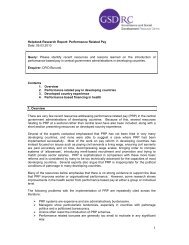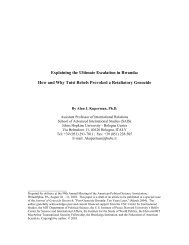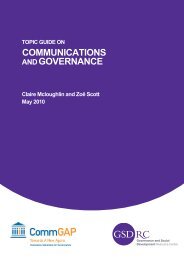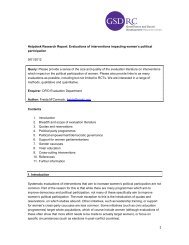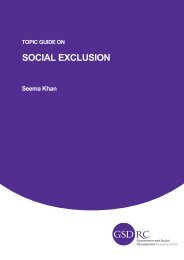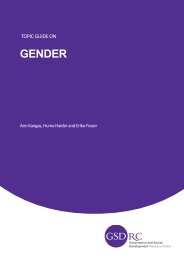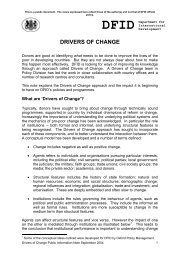ACCESS TO JUSTICE FOR THE POOR OF MALAWI? AN ... - GSDRC
ACCESS TO JUSTICE FOR THE POOR OF MALAWI? AN ... - GSDRC
ACCESS TO JUSTICE FOR THE POOR OF MALAWI? AN ... - GSDRC
- No tags were found...
You also want an ePaper? Increase the reach of your titles
YUMPU automatically turns print PDFs into web optimized ePapers that Google loves.
Human Resource and Management IssuesThe preceding discussion has revealed that magistrates lack sufficient training in lawto enable them to competently decide cases and that they also require the requisitetraining to be case managers, which ought to be the core function of a magistrate.The study also revealed that some former traditional court chairmen were failing tocope with the demands of their new positions as magistrates because of questionableeducational qualifications and insufficient training in their work as magistrates. Insome extreme cases their judgements could not reflect what had transpired in thecourtroom, hence some litigants suspected that there was foul play. One clerkobserved that litigants had lodged so many complaints and appeals against hismagistrate. Unfortunately there has been no feedback from the High Court since 1999.This scenario presents a situation of great potential abuse for individual human rights.What also came out clearly during the study was that the one year lay magistracytraining programme was insufficient to give the magistrates a thorough grounding ofthe law to enable them competently do the work of magistracy. All the recentlytrained Magistrates we interviewed, for instance, said they have had no formaltraining in customary law as such. The little exposure they have had to customary lawwas in the context of a one-semester family law course they did at the StaffDevelopment Institute. This does not give them sufficient orientation to handlecustomary law cases. This deficiency could easily be seen in the quality of theirjudgements. Further still, despite the fact that customary law governs most of the civilcases they handle, magistrates noted that they had very little training in customary lawexcept by way of family law.In terms of exposure to contemporary legal issues, the majority recalled havingattended workshops on bail, community service, and inheritance. A minority recalledhaving attended courses in constitutional law, human rights and customary law. Thesewere mainly magistrates who had attended a four months induction course for laymagistrates in 1999.Magistrates emphasised the need to give specialist training to court clerks so that theycan give better services to magistrates and unrepresented litigants. Some magistratesrecommended regional training workshops for court clerks.It was also noted that most of the prosecutors lack the requisite training for their work.The three months training they undergo at the Police Training School is insufficientfor their needs. Indeed magistrates observed that police prosecutors mishandle casesbecause of lack of skills and recommended more training for them to polish up theirskills.The study also revealed that although all the lay Magistrates admitted that they greatlyliked their job they considered their career prospects as very bleak for the followingreasons:• They loathed the idea that the rank of the first grade was the ceiling. They claimedthat this affects their intellectual development and motivation. Some magistrates23


